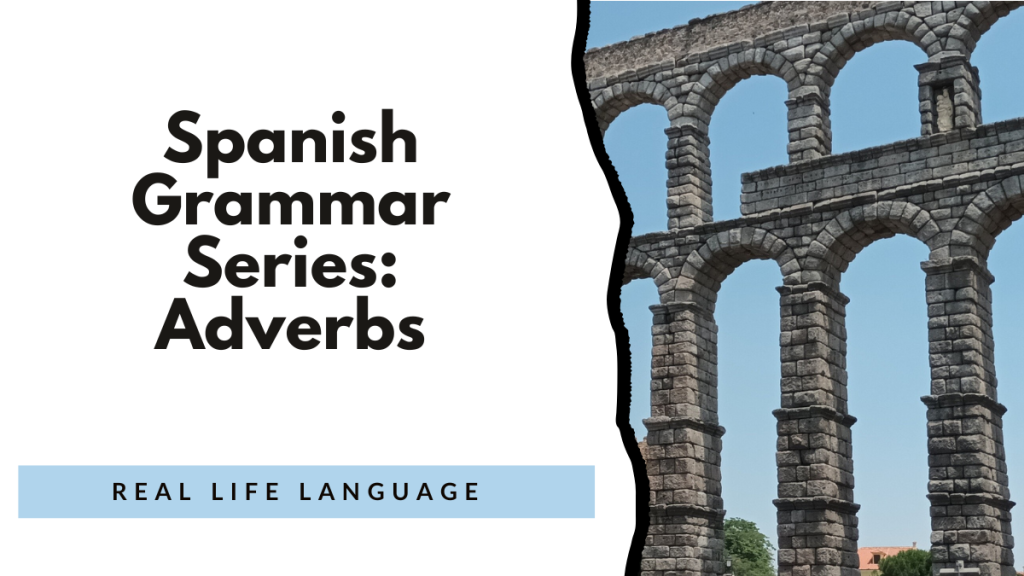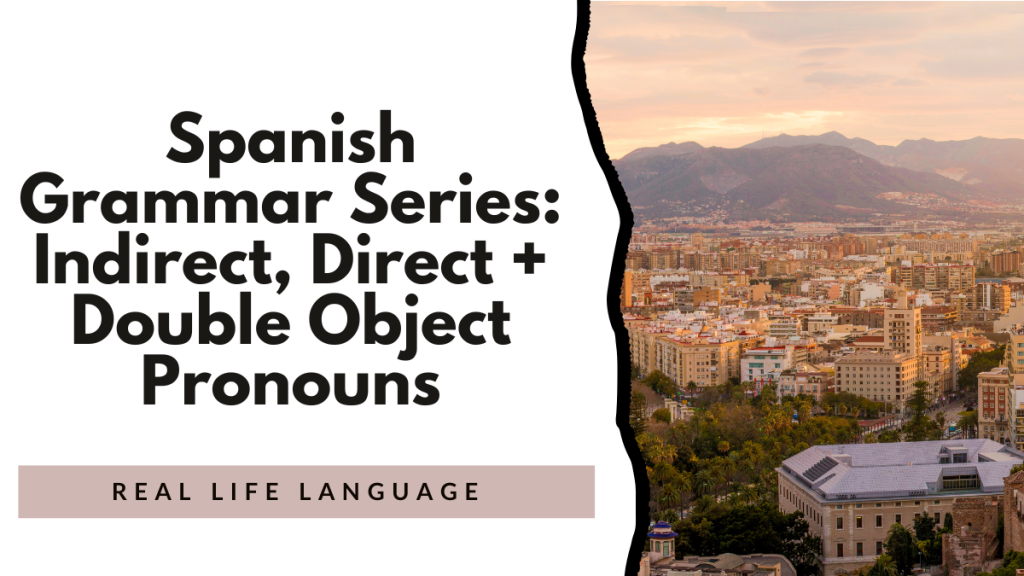(Las Oraciones Condicionales – “Si” Clauses)
In Spanish, conditional (“if… then”) sentences help us express cause and effect. They allow speakers to explain what happens, will happen, would happen, or would have happened depending on a particular circumstance. These structures are common in everyday communication, storytelling, problem-solving, and hypothetical situations.
Most conditional sentences begin with si (meaning if), which introduces the condition. This is followed by a result clause that tells what occurs as a consequence of that condition.
They often begin with “si” (if), followed by a result clause that depends on that condition.
Formula:
Si (if) + condition → result
1) Overview: Three Main Types of Conditional Sentences
| Type | Situation | Verb in “Si” Clause | Verb in Result Clause | English Example | Spanish Example |
| Type 1: Real / Possible | Likely or possible | Present | Present, Future, or Command | If I study, I will pass. | Si estudio, aprobaré. |
| Type 2: Hypothetical / Unreal Present | Not true or unlikely | Imperfect Subjunctive | Conditional | If I had money, I would travel. | Si tuviera dinero, viajaría. |
| Type 3: Unreal Past | Didn’t happen | Pluperfect Subjunctive | Conditional Perfect | If I had studied, I would have passed. | Si hubiera estudiado, habría aprobado. |
2) Type 1 – Real or Possible Conditions
Use this structure for situations that are possible or likely to happen.
Formula:
Si + present tense → present, future, or command
A. Si + Present → Future
- Si estudio, aprobaré el examen. → If I study, I will pass the test.
- Si trabajas mucho, ganarás dinero. → If you work hard, you’ll earn money.
- Si llueve, no iremos al parque. → If it rains, we won’t go to the park.
B. Si + Present → Present
Used for general truths or habits.
- Si llueve, la gente usa paraguas. → If it rains, people use umbrellas.
- Si tengo tiempo, leo por la noche. → If I have time, I read at night.
C. Si + Present → Command
Used to give advice or instructions.
- Si tienes hambre, come algo. → If you’re hungry, eat something.
- Si ves a Marta, dile la verdad. → If you see Marta, tell her the truth.
3) Type 2 – Hypothetical / Unreal Present or Future
Used to describe imaginary or contrary-to-fact situations — what would happen if something were true.
Formula:
Si + Imperfect Subjunctive → Conditional
| Clause | Verb | Example |
| Si clause | imperfect subjunctive | Si tuviera dinero… (If I had money…) |
| Result clause | conditional | …viajaría por el mundo. (…I would travel the world.) |
Examples:
- Si estudiaras más, sacarías mejores notas. → If you studied more, you would get better grades.
- Si fuera rico, compraría una casa grande. → If I were rich, I would buy a big house.
- Si pudieras venir, sería perfecto. → If you could come, it would be perfect.
- Si hiciera sol, iríamos a la playa. → If it were sunny, we would go to the beach.
Note: These situations are unreal or unlikely in the present — they express wishes, dreams, or imagination.
4) Type 3 – Unreal Past (Contrary to Reality in the Past)
Used to describe what didn’t happen, and what would have happened instead.
Formula:
Si + Pluperfect Subjunctive → Conditional Perfect
| Clause | Verb | Example |
| Si clause | pluperfect subjunctive | Si hubiera estudiado… (If I had studied…) |
| Result clause | conditional perfect | …habría aprobado. (…I would have passed.) |
Examples:
- Si me hubieras llamado, te habría ayudado. → If you had called me, I would have helped you.
- Si ellos hubieran llegado antes, habríamos cenado juntos. → If they had arrived earlier, we would have had dinner together.
- Si no hubiera llovido, habríamos ido al parque. → If it hadn’t rained, we would have gone to the park.
- Si hubiera tenido tiempo, habría ido contigo. → If I had had time, I would have gone with you.
This type is completely imaginary — it refers to past events that didn’t happen.
5) Summary Table of Conditional Structures
| Type | Use | “Si” Clause | Result Clause | Example |
| 1. Real / Likely | Possible or factual | Present | Present / Future / Command | Si tengo tiempo, estudiaré. |
| 2. Hypothetical / Unreal Present | Imaginary or unlikely | Imperfect Subjunctive | Conditional | Si fuera rico, viajaría. |
| 3. Unreal Past | Contrary to past fact | Pluperfect Subjunctive | Conditional Perfect | Si hubiera estudiado, habría pasado. |
6) Common “Si” Clause Verbs and Stems
| Verb | Imperfect Subjunctive | Conditional | Meaning |
| tener | tuviera | tendría | to have |
| poder | pudiera | podría | to be able |
| hacer | hiciera | haría | to do/make |
| ir | fuera | iría | to go |
| ser | fuera | sería | to be |
| venir | viniera | vendría | to come |
| decir | dijera | diría | to say/tell |
| querer | quisiera | querría | to want |
| saber | supiera | sabría | to know |
| estar | estuviera | estaría | to be |
Examples:
- Si tuviera tiempo, lo haría. → If I had time, I would do it.
- Si pudiéramos, iríamos contigo. → If we could, we’d go with you.
- Si supieras la verdad, no dirías eso. → If you knew the truth, you wouldn’t say that.
7) Mixing Tenses in Practice
You can combine these structures depending on what you want to express:
| Meaning | Formula | Example |
| Real / possible | Si + present → future | Si llueve, no iremos. |
| Habitual | Si + present → present | Si tengo tiempo, leo. |
| Command / advice | Si + present → command | Si tienes hambre, come. |
| Unreal present | Si + imperfect subjunctive → conditional | Si fuera rico, viajaría. |
| Unreal past | Si + pluperfect subjunctive → conditional perfect | Si hubiera estudiado, habría aprobado. |
8) Omitted “Si” (Inverted Clauses)
In Spanish, sometimes the “si” clause is implied and omitted — especially in literary or conversational speech.
Examples:
- Hubieras venido y lo habrías visto. → (If you had come, you would have seen it.)
- Fuera yo tú, no lo haría. → (If I were you, I wouldn’t do it.)
These forms are less common in speech but appear often in writing and storytelling.
9) Practice: Fill in the Blanks
Complete with the correct forms of the verbs in parentheses.
- Si tú __________ (estudiar) más, __________ (sacar) mejores notas.
- Si __________ (llover), no iremos al parque.
- Si yo __________ (tener) dinero, __________ (comprar) un coche nuevo.
- Si ellos __________ (haber llegar) antes, __________ (ver) la película.
- Si tú __________ (poder), ¿me __________ (ayudar)?
Answers:
- estudiaras / sacarías
- llueve
- tuviera / compraría
- hubieran llegado / habrían visto
- pudieras / ayudarías
10) Practice: Translate
- If I have time, I’ll call you.
- If I were you, I’d tell the truth.
- If it rains, we’ll stay home.
- If you had come, you would have met my family.
- If they studied, they would get better grades.
Answers:
- Si tengo tiempo, te llamaré.
- Si fuera tú, diría la verdad.
- Si llueve, nos quedaremos en casa.
- Si hubieras venido, habrías conocido a mi familia.
- Si estudiaran, sacarían mejores notas.
11) Common Pitfalls & Fixes
| Wrong | Correct | Why |
| Si tendría dinero, viajaría. | Si tuviera dinero, viajaría. | “If” clause = imperfect subjunctive, not conditional. |
| Si habría estudiado, pasaría. | Si hubiera estudiado, habría pasado. | Past hypothetical = pluperfect subjunctive + conditional perfect. |
| Si tengo dinero, viajaría. | Si tuviera dinero, viajaría. | Mismatch: hypothetical → both parts unreal. |
| Si llovería, no iremos. | Si llueve, no iremos. | Real condition → present + future. |
12) Quick Reference Chart
| Situation | Structure | Example | Translation |
| Real / possible | Si + present → future | Si estudias, aprobarás. | If you study, you’ll pass. |
| Habitual truth | Si + present → present | Si llueve, uso paraguas. | If it rains, I use an umbrella. |
| Hypothetical (present/future) | Si + imperfect subjunctive → conditional | Si tuviera dinero, viajaría. | If I had money, I’d travel. |
| Hypothetical (past) | Si + pluperfect subjunctive → conditional perfect | Si hubiera estudiado, habría aprobado. | If I had studied, I would have passed. |
Why “Si” Clauses Matter
Mastering “if… then” statements lets students:
- Express possibility, prediction, and consequence
- Create complex and imaginative sentences
- Use the conditional and subjunctive tenses together naturally
- Sound fluent, nuanced, and authentic
It’s a cornerstone for real-world communication — describing hopes, regrets, and hypotheticals in everyday and academic Spanish.
Building Proficiency for World Language Learners: 100+ High-Interest Activities
Discover over 100 dynamic activities to make world language learning interactive and fun. I wrote this book with some of my favorite activities for educators aiming to build proficiency with high-impact strategies.
Learn more and get your copy here.
5 Weeks of No and Low Prep Fun
Need quick, engaging activities for your class? This free guide includes 25 no-prep and low-prep ideas to save time while keeping students excited about learning.
Download your free copy now.
100s of videos to learn Spanish:

